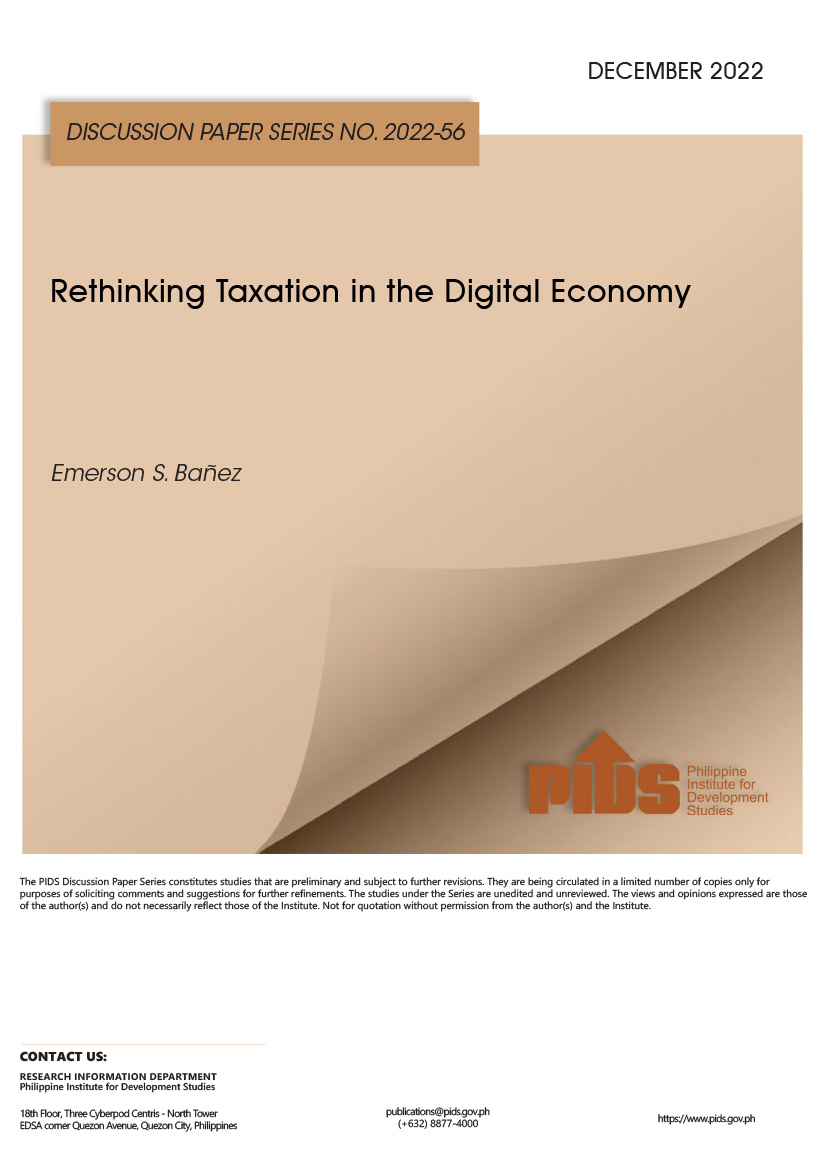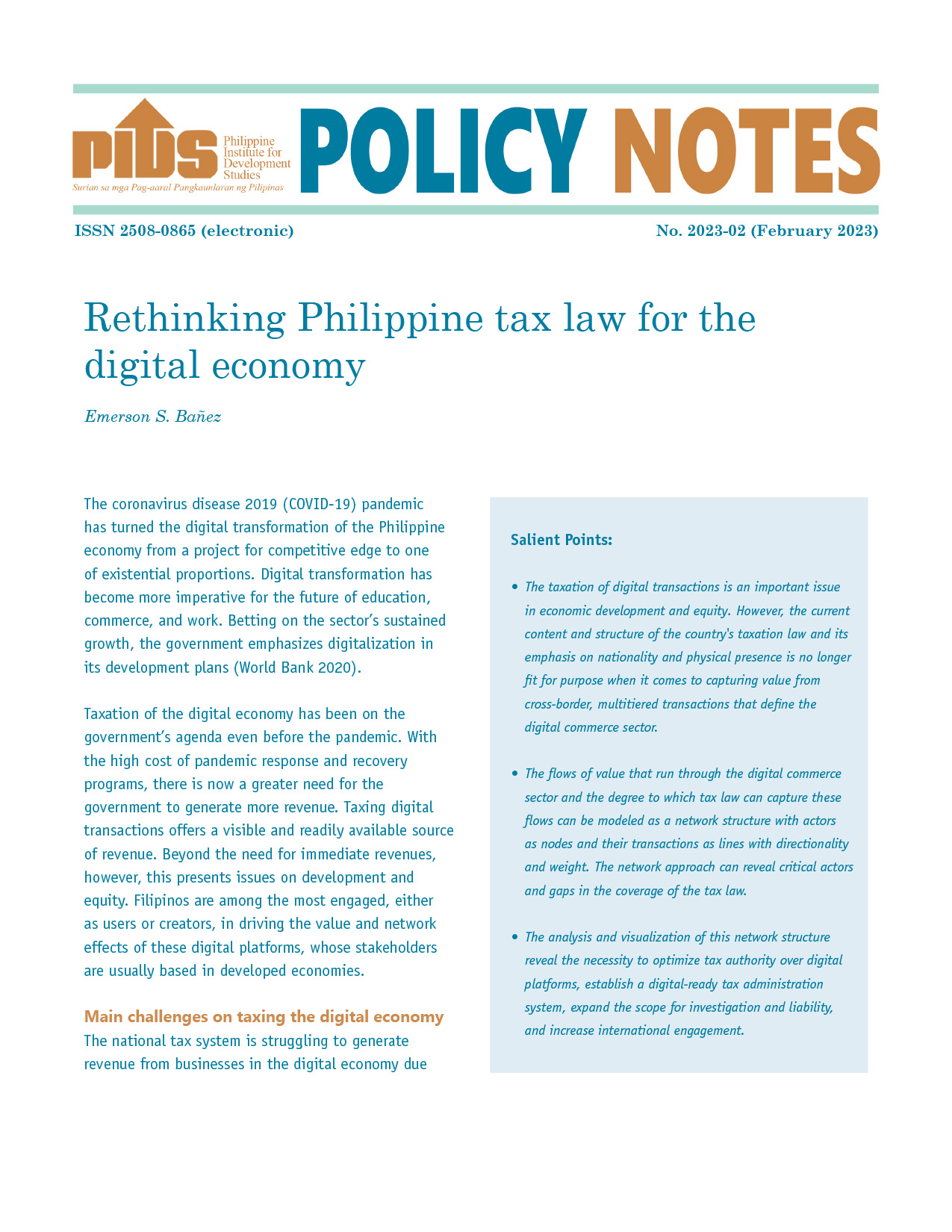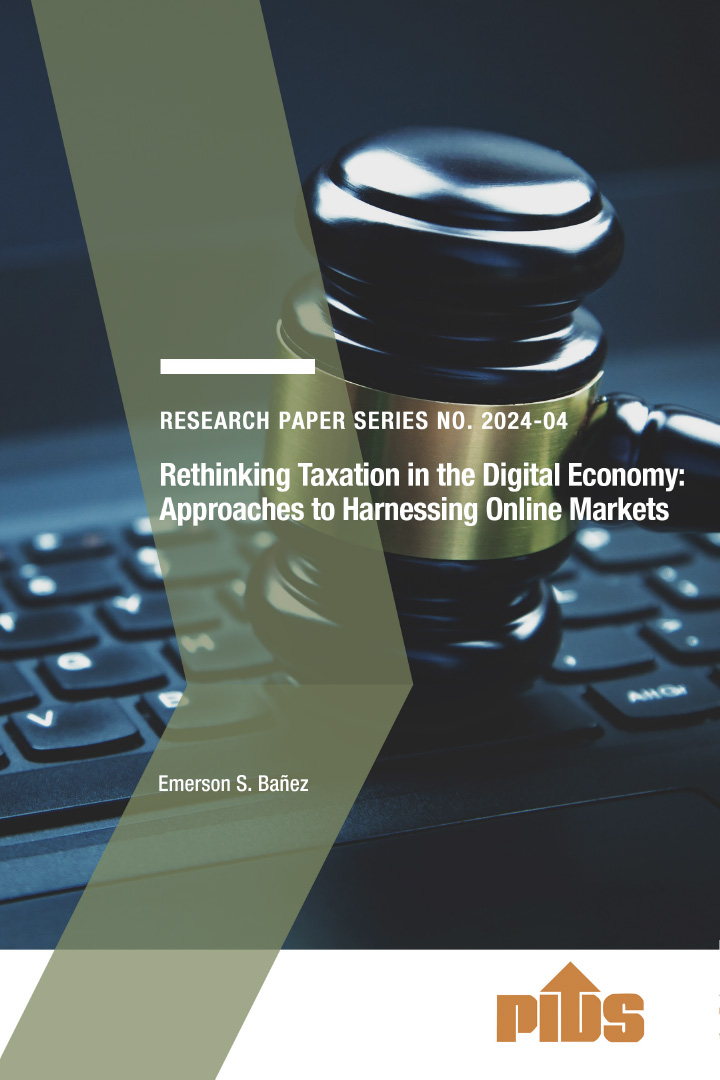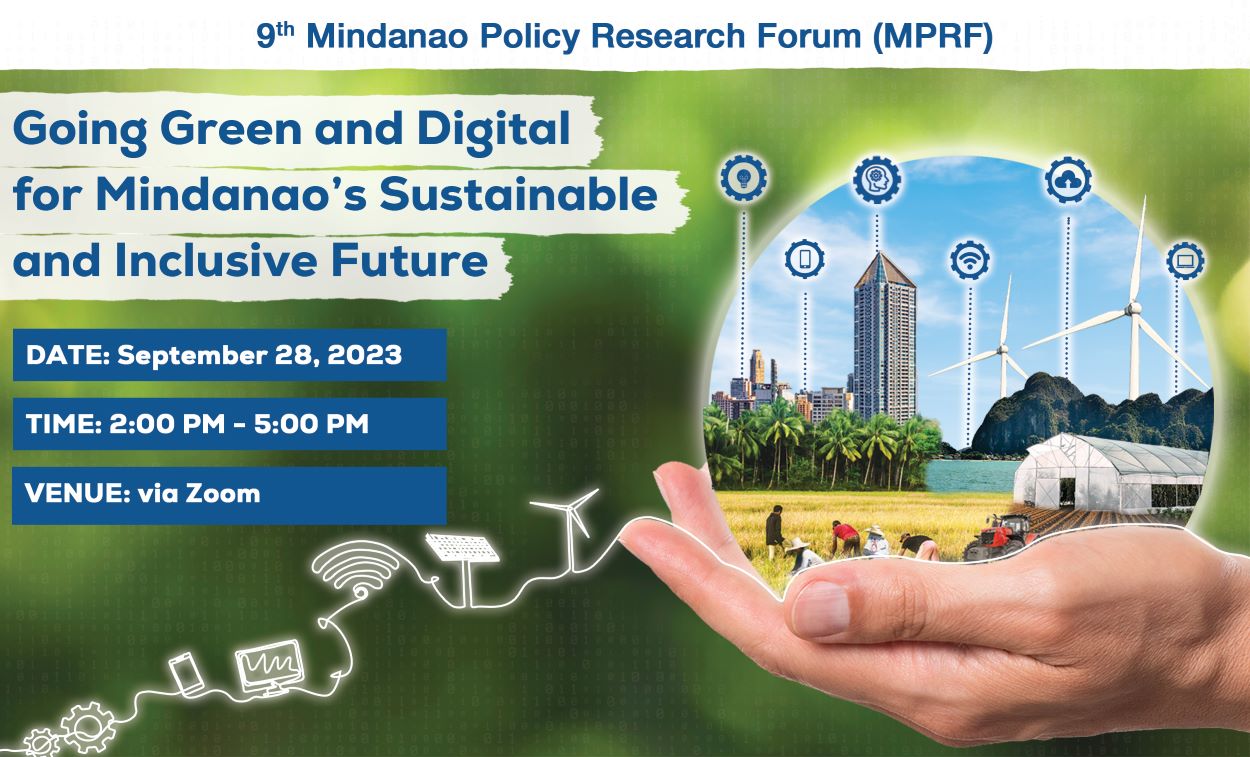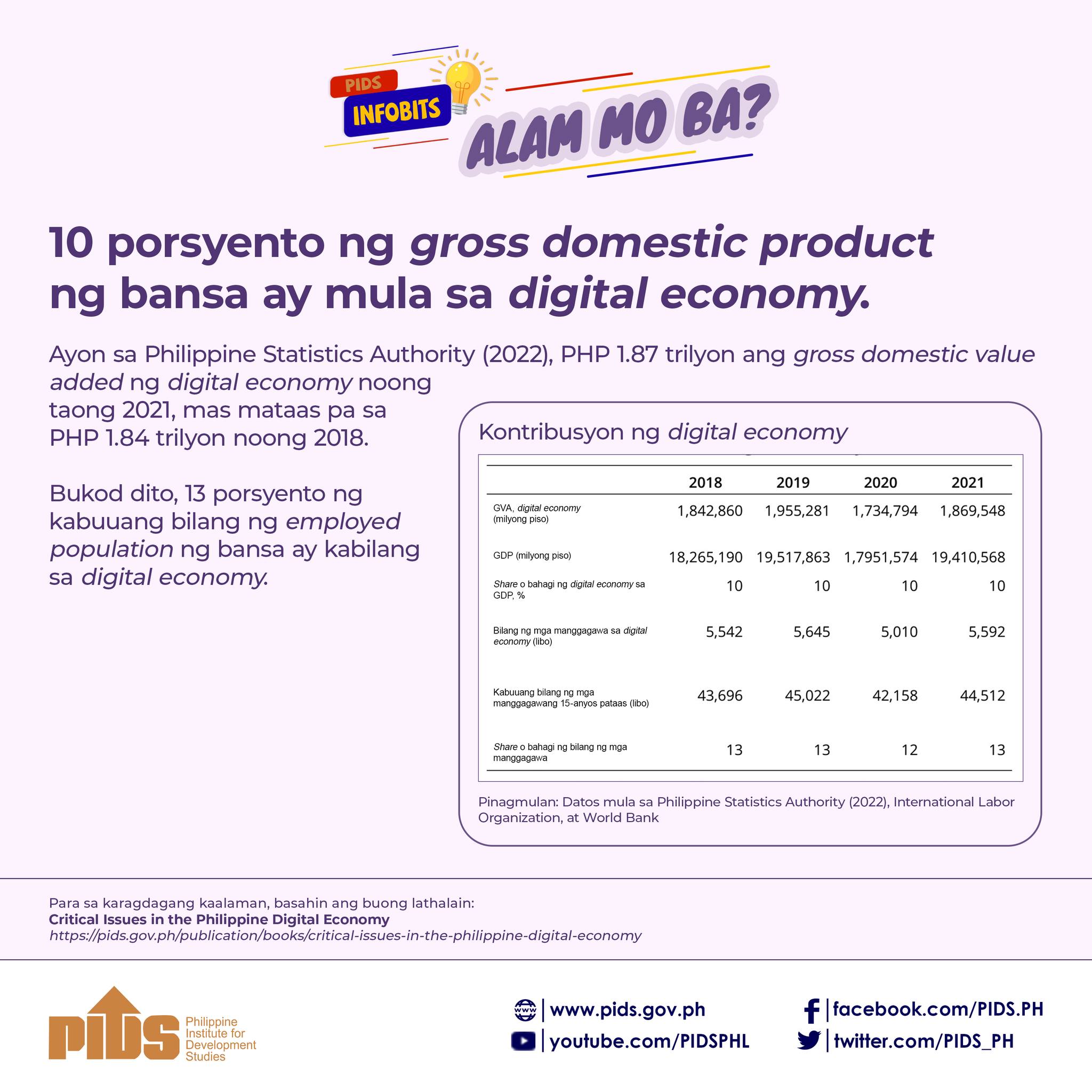
The government is losing substantial revenue and potential funding for its programs as it struggles to impose taxes on digital transactions and nonresident digital service providers amid the digital commerce boom, said a law expert at a webinar organized by state think tank Philippine Institute of Development Studies (PIDS).
Emerson S. Bañez, University of the Philippines College of Law associate professor and author of the PIDS study “Rethinking Taxation in the Digital Economy”, observed that the complexity of the digital economy poses a challenge for tax agencies.
“The national tax system is struggling to capture revenues from digital transactions due to the complexity of these transactions, the absence of physical presence, and the strong dependence on intangible assets,” he said.
Bañez explained that enterprises with a physical presence in a given jurisdiction could be easily identified, monitored, and subjected to tax, but this is not the case for digital commerce. Online businesses can divide their assets across jurisdictions and fragment their activities to shift profits from higher-tax to lower-tax and no-tax locations—a practice known as base erosion and profit shifting. He clarified that while it is technically legal, it is also detrimental to tax administration because businesses can avoid or pay minimal taxes.
By analyzing the digital commerce value chain, Bañez noticed that digital platforms such as online marketplaces and payment systems are the crucial nodes in the network of value flows. He therefore recommended the passage of legislation mandating additional tax liabilities and requiring them to act as withholding agents or providers of data required to determine the tax liability of related actors and transactions.
Nevertheless, he acknowledged that legislative efforts for the digital market are already underway and mentioned the proposed digital services tax and other clarificatory circulars to accommodate the income of locals participating in the digital economy.
Yet, there is no current legal coverage for platforms located abroad. Thus, he recommended entering multilateral treaties as a countermeasure against base erosion. One of these is the OECD's Two-Pillar Solution, which proposes an attribution to the user's home state and calculates the tax liability of online platforms.
Tax Management Association of the Philippines President Suzette A. Celicious-Sy, who served as a discussant at the webinar, concurred with Bañez’s recommendations.
She asserted, however, that the Philippines' current tax laws adequately address the taxation of digital businesses that are registered or conducting business in the country. Among these is the Bureau of Internal Revenue’s (BIR) memo that reiterates the obligations of online businesses to register with the BIR and secure the required invoices or receipts and the required expanded withholding tax.
“The BIR is aware that there is room for improvement in the monitoring, tracing, and reporting that would capture the revenues of those engaged in digital commerce. They have made issuances to address these comments and observations,” she said.
Nonetheless, she supported Bañez’s suggestion that the Philippine legislature should update the tax legislation to reflect digital trends to boost the government's revenue and help the economy recover from COVID-19.
Watch the webinar at https://fb.watch/kRq0NiKXj5/ or https://youtu.be/18IlZF0yG-I.
For more videos of PIDS events, go to https://www.pids.gov.ph/videos. ###

